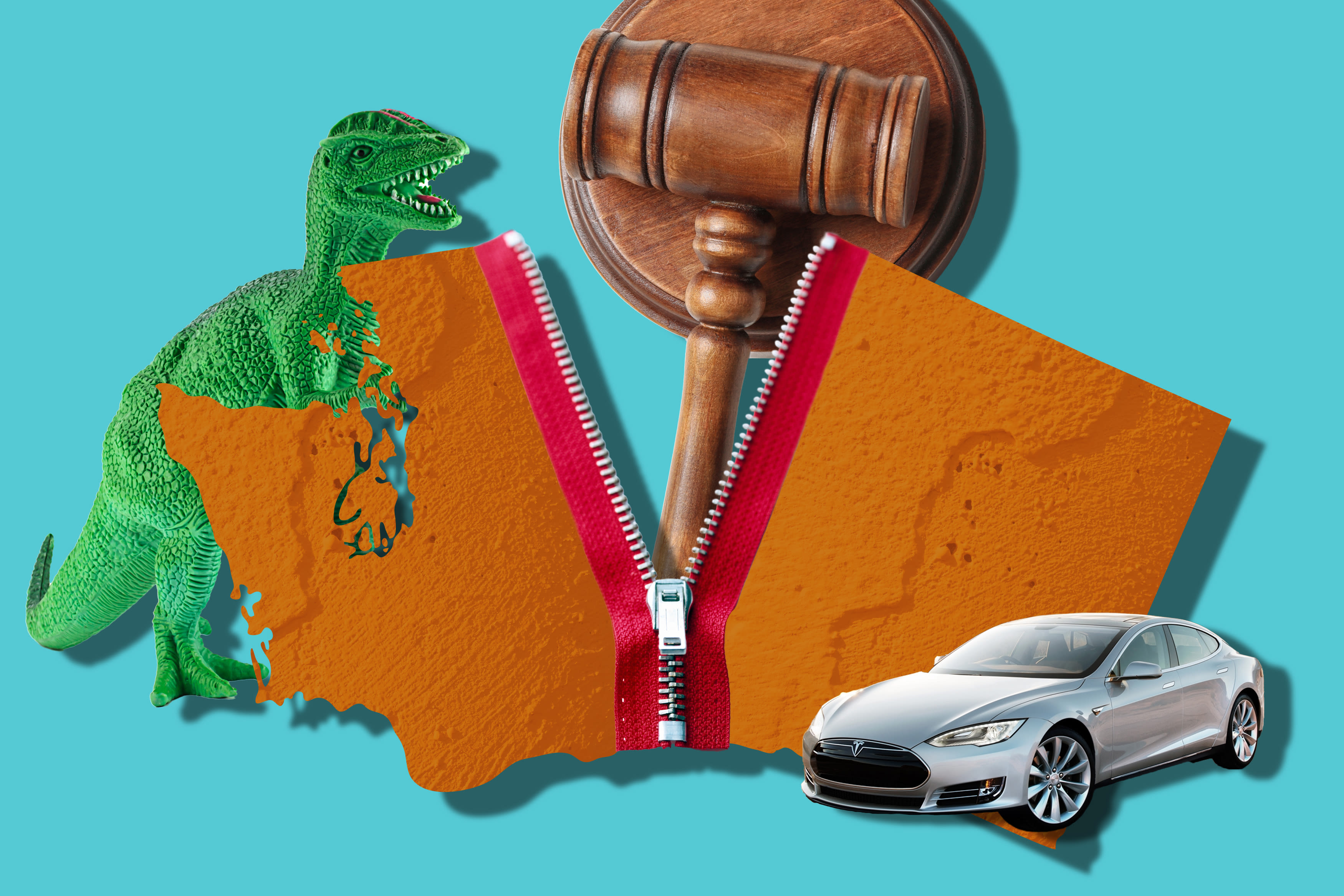Should Washington Ditch a "Tampon Tax"? Here's Why It's Complicated.

Image: Eric E Castro / Flickr
Back in October, Seattle City Council member Teresa Mosqueda regenerated an idea about a way to make the sales tax slightly less unfair to women: Can the city make a tax exemption for feminine hygiene products?
Removing a so-called “tampon tax”—or rather, exempting tampons or pads from the sales tax—has cropped up in legislatures nationwide over the past two years. In Olympia, state representative Kristine Reeves, a Federal Way Democrat, introduced a bill on the subject that received a public hearing last month.
The sales tax exemption aims to provide relief to low-income women, in a state that disproportionately taxes poor people a higher percentage of their income.
Such an exemption already exists for other basic needs, like food or water. Local officials argue that removing the "tampon tax" is drastically needed for this state, where households with the lowest incomes—making $24,000 a year or less—pay 17.8 percent of their income toward taxes. The richest 1 percent—those making $545,900 or more—pay just 3 percent.
When Mosqueda told other council members, “Seattle has led in the past. I think we can lead again,” she was making a case for lopping off the city’s 3.6 percent sales tax from menstrual products, thereby encouraging the state to do the same to the remaining 6.5 percent. (The two taxes combine to make Seattle's 10.1 percent sales tax.)
It also wouldn't cost Seattle much. If the city succeeded in removing its portion of sales tax from these products, “the back-of-the-envelope analysis is that it's something around $250- or maybe $350,000 a year” in revenue loss, Mosqueda told PubliCola. “That is budget dust when it comes to the scale of the budget that we have,” while helping local families and their pocketbooks, Mosqueda said.
But some tax experts wonder whether well-meaning tweaks will alter or simply abet the status quo. Ditching the "tampon tax" looks like progress, but in practice could cause further harm to overtaxed demographics in the form of raised sales tax rates on other goods. And when Washington’s very reliance on sales tax is responsible for its regressivity, a popular sales tax exemption could be seen as nothing more than legislative clickbait.
Economist Dick Conway, who served on the Governor's Council of Economic Advisors for the last four governors, offers a solution: Adopt an income tax. And get rid of all sales taxes.
But it’s a solution that’s long been impossible to pass. Elected officials, especially at the state level, have been eager to oppose any income tax—if only to secure their seat for another term. Governor Jay Inslee's new budget too passes over both adding an income tax or reducing the sales tax, instead proposing a safer capital gains tax.
"If you mention income tax, you get blown out of the water," Conway told PubliCola.
The sales tax, at least for now, is here to stay in Washington. And while both the city and the state could be successful at moving their "tampon tax" exemptions through in the coming year, sound sales tax policy traditionally avoids exemptions.
Nicole Kaeding—director of federal projects at the Tax Foundation, a D.C. tax policy nonprofit—said when it comes to sales tax, economists want a broad tax base and low rates.
“The more you take out of your sales tax base, the higher the rate has to be to generate the revenue,” Kaeding told PubliCola. And this could have the counter effect of putting more strain on vulnerable populations.
While tax-free tampons would benefit menstruating women, women over 50 might then "have to pay higher sales taxes on all of their other goods,” Kaeding said. Reducing the sales tax burden on one low-income population may ultimately harm other ones, as sales tax hikes always exacerbate the system's inherent inequality.
Kaeding’s other qualm with “blanket exemptions” is that “they aren't targeted to low-income individuals. So we can exempt feminine hygiene products to help low-income individuals in Washington. But high-income individuals in Washington will also benefit."
Whether exemptions truly help, or just trade one problem for another, is unclear. Kaeding suggests one solution is targeted relief: estimating the sales taxes paid by low-income individuals and offsetting it.
Conway prefers the income tax because it’s progressive, efficient, and transparent. In other words, it taxes according to wealth, grows alongside the economy, and shows everyone what they’re paying. In its dearth, Washington has “to keep going back to the well for new taxes. And every time we do, we pick another regressive tax.”
"It seems like these arguments [for tax exemptions] tend to be so twisted in that they are avoiding the real problem," Conway said—sales tax itself.




